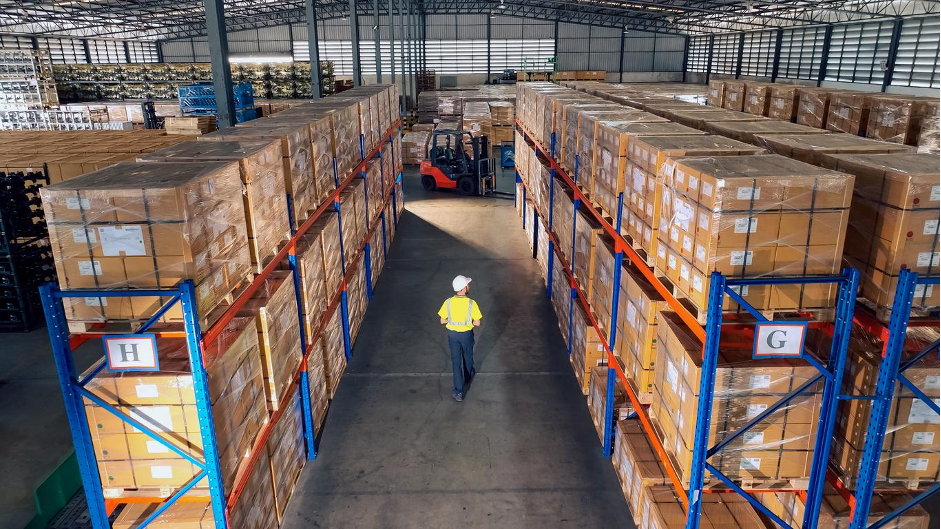The concept of digital freight forwarding has emerged as a transformative force. This innovation is redefining how freight forwarders operate, ensuring the efficient, safe, and timely transport of goods from origin to destination.
Understanding the Role of a Freight Forwarder
Traditionally, a freight forwarder, or FFW, plays a critical role in the logistics industry. Their primary responsibility is to organize and coordinate shipments for companies and individuals.
This involves a myriad of tasks, including selecting carriers, negotiating freight rates, and managing the logistics of getting goods from the point of origin to their final destination. The effectiveness of a freight forwarder directly influences the efficiency and reliability of the supply chain.
What is Digital Freight Forwarding?
Digital freight forwarding represents a paradigm shift in the logistics industry. It integrates advanced digital technologies into the traditional freight forwarding process.
This modern approach automates many of the tasks traditionally performed by freight forwarders, such as booking carriers, tracking shipments, and managing documentation.
By leveraging technology, digital freight forwarding streamlines operations enhances transparency, and facilitates real-time communication.
Digital Freight Forwarding Benefits: Transforming Logistics
The transition to digital freight forwarding offers a plethora of advantages, revolutionizing how goods are transported globally. Here are some key benefits:
Enhanced Efficiency and Speed
One of the most significant impacts of digital freight forwarding is the increased efficiency it brings to the shipping process. Automation of routine tasks reduces the likelihood of human error and speeds up operations. This expedited process ensures that goods reach their destinations faster and more reliably.
Improved Visibility and Transparency
Digital platforms used in freight forwarding provide real-time tracking of shipments. This visibility is crucial for businesses that need to monitor the movement of their goods closely. It enhances transparency in the supply chain, allowing for better decision-making and improved customer service.
Cost-Effectiveness
By optimizing routes and automating various functions, digital freight forwarding can lead to significant cost savings. These savings come from reduced manual labor, more efficient use of resources, and the ability to quickly compare and select the most cost-effective shipping options.
Scalability and Flexibility
Digital freight forwarding solutions are highly scalable, accommodating the varying needs of businesses, whether they are shipping small parcels or large containers. This scalability ensures that companies of all sizes can benefit from digital solutions, adapting as their business needs change.
Advanced-Data Analytics
The use of advanced data analytics in digital freight forwarding enables more informed decision-making. Freight forwarders can analyze historical data and current trends to optimize shipping routes, predict potential delays, and enhance overall supply chain efficiency.
Mastering Regulatory Compliance in Modern Logistics
A key strength of modern logistics technology lies in its adept handling of the intricate network of global trade laws.
Ensuring adherence to these ever-changing regulations is vital to preventing disruptions and penalties in the shipping process. Innovative logistics platforms stay abreast of international legal changes, guaranteeing that shipments meet all necessary legal standards.
This proactive approach not only mitigates risk but also bolsters the dependability of international shipping operations.
Pioneering Eco-Friendly Logistics Practices
In an era where environmental consciousness is paramount, state-of-the-art logistics solutions lead the way in sustainable practices.
They achieve this by refining travel routes and minimizing unnecessary transportation, thereby substantially cutting down on carbon emissions.
The move towards digitized documentation and transaction processes further underlines the commitment to environmentally responsible logistics.
In response to the growing emphasis on environmental sustainability, these advanced systems provide a blueprint for more eco-conscious supply chain methodologies.
Elevating Customer Experiences through Advanced Logistics
The influence of sophisticated logistics solutions on customer satisfaction is profound. Features like live shipment tracking and comprehensive online information give clients unmatched oversight and management of their shipments.
This level of transparency fosters trust and streamlines communication among all parties involved in the shipping process. Additionally, these systems often feature intuitive interfaces and robust support tools, significantly enhancing the overall user experience.
Harmonizing E-commerce with Cutting-Edge Shipping Solutions
E-commerce’s exponential growth has spurred a need for logistics solutions that are both flexible and efficient. Advanced shipping systems integrate flawlessly with e-commerce frameworks, streamlining the process from order placement to delivery.
This synergy is essential for e-commerce-centric businesses, ensuring a seamless transition throughout the buying cycle and bolstering customer contentment and loyalty.
The Future of Freight Forwarding
As the world continues to embrace digital solutions, the future of freight forwarding is undoubtedly digital. This shift is not just a trend but a necessary evolution to meet the increasing demands of global trade.
Digital freight forwarding platforms will continue to evolve, incorporating cutting-edge technologies like artificial intelligence, blockchain, and the Internet of Things (IoT). These advancements will further streamline the shipping process, enhance security, and improve sustainability in logistics.
Embracing the Digital Revolution in Freight Forwarding
The journey from traditional to digital freight forwarding marks a significant milestone in the evolution of the logistics industry. Companies that adopt digital freight forwarding are poised to reap substantial benefits, including enhanced efficiency, greater transparency, cost savings, and improved customer satisfaction.
As the industry continues to evolve, embracing digital freight forwarding is not just a competitive advantage but a necessity for success in the ever-changing global marketplace.
In summary, digital freight forwarding is not merely a new method of managing logistics; it’s a comprehensive solution that propels the entire supply chain into a more efficient, transparent, and sustainable future.












